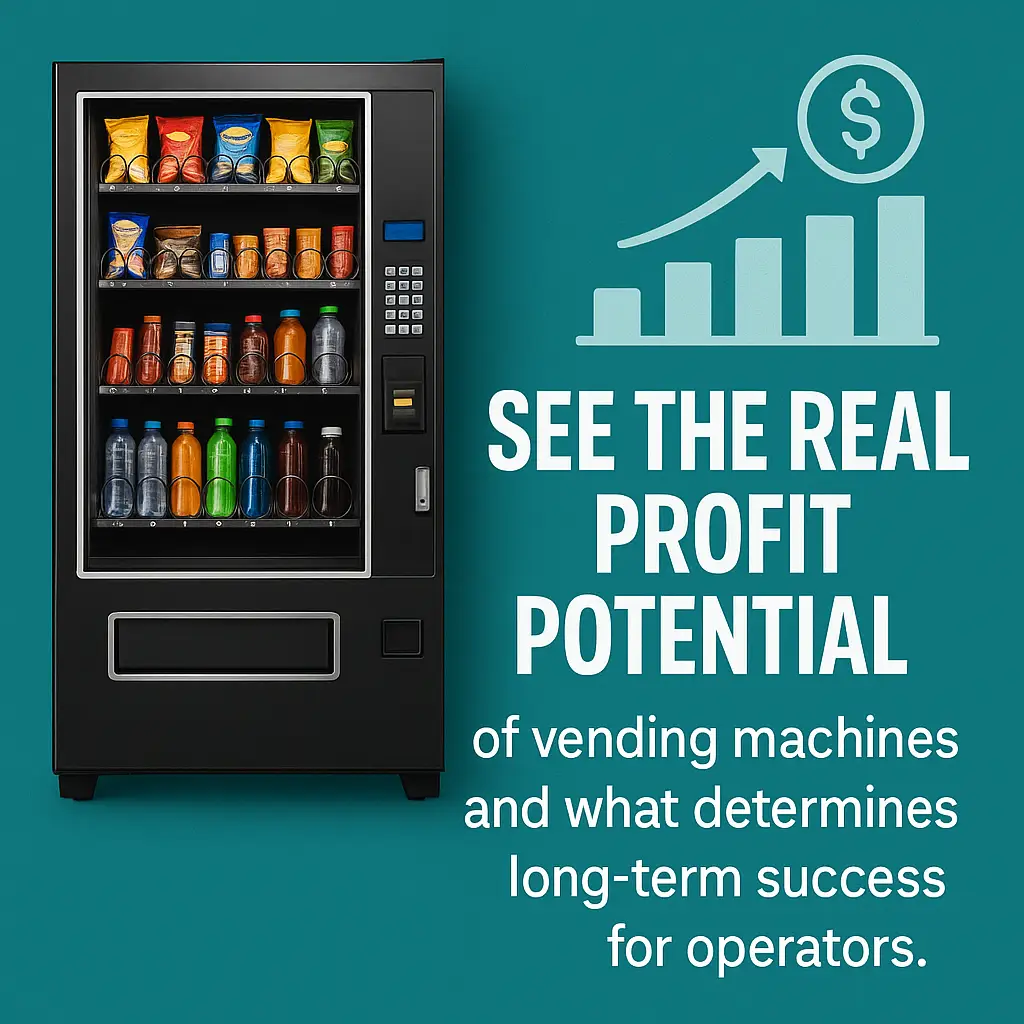Is Vending a Profitable Business?
See the real profit potential of vending machines and what determines long-term success for operators.
Back to Vending Business Startup ResourcesSee the real profit potential of vending machines and what determines long-term success for operators.
Back to Vending Business Startup ResourcesStart your 30-day free trial and get instant SMS and email alerts whenever a local business needs vending service. These are real location leads to help you grow your route — you decide which ones to buy, no obligations or contracts.
![]() Location quality directly impacts vending machine profitability
Location quality directly impacts vending machine profitability
![]() Product selection affects repeat customer engagement and revenue
Product selection affects repeat customer engagement and revenue
![]() Smart payment options increase sales across customer demographics
Smart payment options increase sales across customer demographics
30 days free, then $39 / month.
No Commitment. Cancel Anytime.

Vending machines can be a profitable business model, especially with low overhead and scalable operations. However, the level of profitability depends heavily on factors such as location, machine type, product selection, and service efficiency. Entry costs are relatively low compared to other businesses, and recurring revenue is possible when machines are placed in high-traffic, reliable sites.
Profit on individual items can range widely, but operators often see margins of 50% or more on snacks and drinks. For example, a soda that costs $0.50 wholesale can sell for $1.25 in a machine. Over time, these markups yield solid returns—especially in areas with consistent foot traffic. The key to maximizing profits lies in minimizing downtime, choosing trending or in-demand products, and selecting the best possible locations.
One of the biggest factors impacting profitability is location. Machines placed in offices, schools, factories, or apartment buildings with a captive audience tend to perform better. Strategic placement and maintaining strong relationships with location owners can be the difference between a machine earning $50 a month and one earning $500. Tools like Vending Exchange’s lead service help operators discover vetted opportunities.
Smart technology and contactless payment systems are also increasingly important. Machines lacking modern payment options may see lower usage. Investing a little more up front in newer vending technology can lead to better long-term returns. AI coolers and glass-front machines, for example, often yield higher ticket sales with premium pricing potential.
Scaling a vending business is very achievable, often requiring just a few reliable locations to start. Over time, an operator can reinvest profits into expanding their machine count, improving equipment, and increasing product variety.
If you’re starting out, learning how to secure good placement is essential—see our guide to approaching local businesses. You can also explore real-world examples in our collection of vending location success stories to see what works in today’s market.
Vending Exchange connects vending operators with real businesses actively looking for vending services—including traditional machines, AI coolers, and office coffee. Get instant SMS and email alerts when new opportunities are available in your area. No contracts or monthly fees—just buy the leads you want. Start your free 30-day trial today and grow your vending business on your terms.
Income varies by location, but a profitable machine can bring in $100 to $500 per month after costs.
Ongoing costs include product restocking, maintenance, fuel for servicing, and occasional equipment repairs.
Not necessarily. A few high-performing locations can generate solid profits without scaling quickly.
Focus on high-traffic areas like offices, schools, and apartments. Tools like Vending Exchange can help.
Yes, many operators successfully manage their routes part-time, especially when starting out.
Striking the right balance between price and volume is critical; underpricing cuts margins, overpricing reduces sales.
Combo machines and smart coolers often yield higher profits due to variety and modern appeal.
Yes. Machines with card readers and mobile pay often outperform cash-only models, especially in urban areas.
Yes, especially in outdoor or public spaces. Indoor secured locations usually carry less risk.
Choosing poor locations or not servicing machines regularly can quickly erode profits and customer trust.